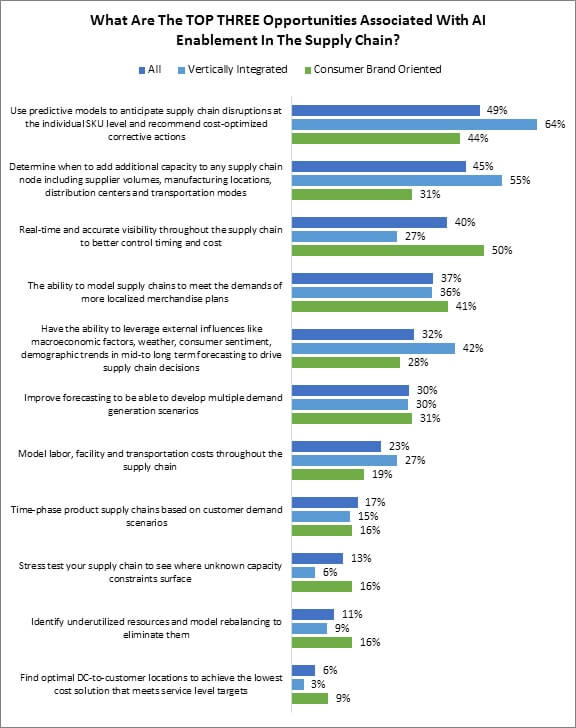Startups And The AI Arms Race
As you might imagine, we take a lot of vendor briefings here at our little company, and lately, we’ve been fielding more and more from startups. Certainly seems like the pandemic (and the amount of time it has allowed people to be out of their typical office routine) has sparked quite a bit of ingenuity from creative tech types. Having launched our own company during an uncertain time (2007, anyone?) we say “Godspeed,” and look forward to the disruptive technologies that invariably result from this global anomaly.
The reason I bring all this up is because the vast majority of these new startups are based around one specific technology: artificial intelligence. It is exactly zero percent surprising to us that creative minds in the tech world are increasingly asking the question, “How can we use AI to reimagine the X process”, with X being a certain variable within retail operations. What is surprising, however, is just how many variables we’ve been pitched so far. Some of these examples are way down into the weeds – these are not the general “We use AI to help retailers with planning” calls we were getting just a year ago.
It’s encouraging, and it begs the question: when these guys start talking to retailers, will retailers be on the same page? Will retailers respond with, “My gosh – that’s exactly what I’ve been wanting to automate for all these years” or will it more often than not be a response akin to, “You sound like a technology in search of a problem. Goodbye.”
So to gauge that very thing, we asked retailers that very thing (It’s kind of what we do!). Take a look at what they told us in our most recent report on AI as it relates specifically to the supply chain:
Figure 1: An Emerging Understanding

Source: RSR Research, June 2020
The promise of AI-enablement is that new math-driven analyses (rather than traditional IF-THEN-ELSE rules-based analyses) make it possible for businesses to develop predictive models which in turn enable automated decision making. About one-half the retailers we queried clearly see the opportunity to use predictive models to automate corrective actions in response to supply chain disruptions (Figure 1).
AI-enabled modeling technologies can give retailers the ability to run scenarios to understand if changing inventory policies, sourcing strategies or product flows will alleviate those bottlenecks. This study reveals that that vertically integrated retailers (those that control the design and manufacture of their own branded products) cite the use of predictive modeling to anticipate supply chain disruptions as an opportunity far more frequently than consumer-branded oriented retailers do. Likewise, vertically integrated retailers have a far greater interest than other retailers in using predictive models to help them to determine when to add additional capacity to any node in the supply chain.
Having said all of this, it’s clear that “AI” is far from being generally accepted as a must-have capability. As is so often the case, many retailers seem to be waiting for someone else to develop the top use cases. That “someone else” appears to be over-performers, as RSR studies frequently note, but only by a slight margin (Figure 2).
Figure 2: Who Will Develop The Use Cases?
| TOP THREE Opportunities Associated With AI Enablement In The Supply Chain | ||
| Winners | Others | |
| Determine when to add additional capacity to any supply chain node including supplier volumes, manufacturing locations, distribution centers and transportation modes | 51% | 38% |
| Use predictive models to anticipate supply chain disruptions at the individual SKU level and recommend cost-optimized corrective actions | 49% | 49% |
| Real-time and accurate visibility throughout the supply chain to better control timing and cost | 42% | 38% |
Source: RSR Research, June 2020
Considering the relative newness of AI as a viable solution for retailers of all shapes and sizes, the fact that some close to one-half of our respondents see AI as a top-three enabler to address supply chain issues is encouraging. But AI-enablement in the supply chain is certainly not a “done deal”.
The net? It certainly seems like our startup friends are going to have to do quite a bit of evangelical work if they are to succeed.
We invite anyone interested in how AI is (and will be) affecting the supply chain to download the report. Like everything else we publish, it is completely free to the world.
